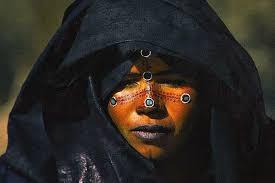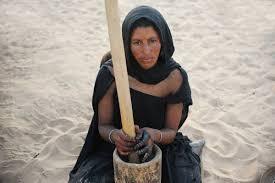DESERT QUEENS. The most beautiful and resilient women on the African continent.

Taureg Women.Desert Queens — not fragile flowers.
DESERT QUEENS
The moist beautiful and resilient women on the African continent.
Sun-scorched, sand-worn, and still striking, they face the Sahara on their own terms. Tuareg women are semi-nomadic Islamic Africans, with an identity carried in their bones — passed through songs, veils, and footsteps in the sand.
They speak Tamasheq, whether herding camels, trading salt, or weaving tales around fires under star-swept skies. Tamasheq is supported by the elegant, ancient Tifinagh script. To be Tuareg is to belong to the Sahara, not a nation — a vast, windswept kingdom that ignores the lines drawn on modern maps. You will find them across Mali, Niger, Algeria, Libya, Burkina Faso, and Chad, yet their true home is the shifting desert.
They are Berbers — a proud branch of the Amazigh people. They are desert masters — navigating terrain most would not survive. They honour their women — Tuareg society leans matrilineal. Women own tents, inherit land, and are the guardians of tradition and poetry. They are veiled nomads — men famously cover their faces with indigo cloth (tagelmust), while women wear flowing robes rich with meaning and silver symbols of strength.
They are survivors — of colonisation, conflict, climate, and time.In this blog post, I explore some of the traditional customs and challenges Tuareg women face — and their efforts to improve their lives. For many years, I’ve had the privilege of visiting Timbuktu and observing the unique nomadic desert lifestyle of the Tuareg people.
The Tuareg women particularly captivated me on each visit. I was fortunate enough to enjoy, on various occasions, their nomadic desert meals — accompanied by stunning sunsets and the sensation of the cool, damp sand beneath my feet as the sun disappeared.The Tuareg women were always present… etched on the horizon, at a distance — eagerly waiting for inquisitive travellers to approach and examine their handcrafted goods in the hopes of making a sale. Despite the uncertainty of the situation, the women did not appear sad. Instead, they would giggle, smoke their “cigars,” and engage in intimate conversations. Perhaps they were amused by the outsiders trying to understand the Sahara. The cultural significance of smoking among Tuareg women is not widely documented — but I have witnessed it multiple times.Tuareg women are known for their distinctive physical features — dark skin, high cheekbones, and large, expressive eyes.
They have become resilient to the harsh conditions of the Sahara. Once, in a moment of affection, I reached out and touched the hand of a beautiful face I had admired for many years from a distance — and I was shocked. Her hand told a story. It carried the texture of sandpaper. The sun had etched thousands of tiny grooves into her skin, yet she remained undeniably beautiful.
They use natural ingredients such as kohl eyeliner to enhance their features — eyes and lips — and to protect their eyes from the desert sun. Kohl reflects both cultural heritage and a deep connection to nature. It is believed to have both cosmetic and spiritual benefits. Beyond kohl, Tuareg women may adorn themselves with henna tattoos and elaborate clothing. They also wear silver jewellery — heavy necklaces, cuffs, and earrings — all symbolic, inherited, and deeply personal.These ladies do not veil their faces with a litham all the time, only when shielding themselves from the elements or when privacy is needed. Like the men, they typically wear long, lightweight, colourful dresses called tenadjam, sometimes decorated with intricate beadwork and woven headwraps. Their robes signify social status — a woman’s marital standing and her husband’s wealth. The iconic blue colour is said to represent their spiritual link to both sky and sand.
Yes, Tuareg women wear shoes in the desert — typically sturdy, closed-toe sandals or boots to protect their feet from sharp rocks. Some wear traditional leather sandals called tehadart to maintain a connection to their cultural heritage.It is easy to romanticise desert life — but crossing the Sahara for weeks on camelback, with limited supplies, is pure endurance.
One of the biggest challenges is access to water. Women often travel long distances to find sources and then return with heavy loads. They manage the household’s water — for drinking, cooking, and hygiene.
So how do they maintain personal hygiene out there in the dust and heat? With ritual, resourcefulness, and rhythm. Their dignity is wrapped not just in cloth, but in discipline. Life on a salt caravan is not elegant — but it is efficient, adapted, and centuries-tested. Nothing is wasted. Every gesture has purpose. They carry small flasks, rationed carefully. Hands and faces are sometimes cleaned with sand — a natural exfoliant. Ash and desert clays are used to absorb oils and sweat. For menstrual hygiene, reusable cloth is washed during rest periods when water is available. Fragrant desert herbs like myrrh or resin serve not only as perfume, but also as natural body fresheners.
Despite the difficulty of growing crops, Tuareg women have developed clever irrigation systems and cultivate hardy desert plants. They also rely heavily on livestock and animal husbandry to provide food and income for their families.
Tuareg women often marry young, typically in their teens, and have several children. Polygamy is common, especially among wealthier men. Divorce is possible and, while discouraged, is not uncommon. In many cases, the woman retains custody of her children and may receive a share of her husband’s wealth. Traditions vary by region and family, but women are generally afforded more rights than in many neighbouring societies.
Access to education varies — many women in rural areas still face significant challenges. Distance, tradition, and lack of resources hinder progress. But change is stirring. Some Tuareg girls and women are now pursuing higher education and entering professions that were once closed to them. Schools are opening, slowly, and female literacy is rising, especially in towns.Tuareg women are the quiet custodians of a culture as vast and untamed as the Sahara itself. Though it is hard to measure exactly how many still live traditionally — wandering between dunes, hauling water, tending fires, and weaving silver — the truth is, they were never meant to be measured.
The Tuareg do not follow borders. The desert is theirs in spirit, not on paper.Official sources estimate around 1.5 million Tuareg people across Mali, Niger, Algeria, Libya, and Burkina Faso. Perhaps 10% still live nomadic or semi-nomadic lives — among them, women who carry generations of knowledge in their hands and dust in their footsteps.Yet the desert is changing. Conflict, climate change, and the pull of urban life are drawing more families into towns. The salt trade has thinned. Camels are fewer. But even when they settle, Tuareg women do not forget. The desert still hums in their voices. Their silver jewellery still sings with symbols. Their veils still speak of identity, privacy, and pride. What is powerful is not how many remain, but how deeply they endure — adapting, educating, innovating — while holding tight to the stories that shaped them.
Sand on their skin. Stars in their hearts. And always, the wind at their backs.

Curious to know more?
Follow the sand trails — some stories are too vast to fit in one post.
Here are a few beautiful and insightful reads on Tuareg culture:▪️ Smithsonian Magazine – “The Blue Men of the Sahara”▪️ UNESCO – Intangible Heritage: Imzad and Tuareg rituals▪️ Susan Rasmussen – Anthropologist and author on Tuareg women▪️ Everyculture.com – A light, accessible overview
